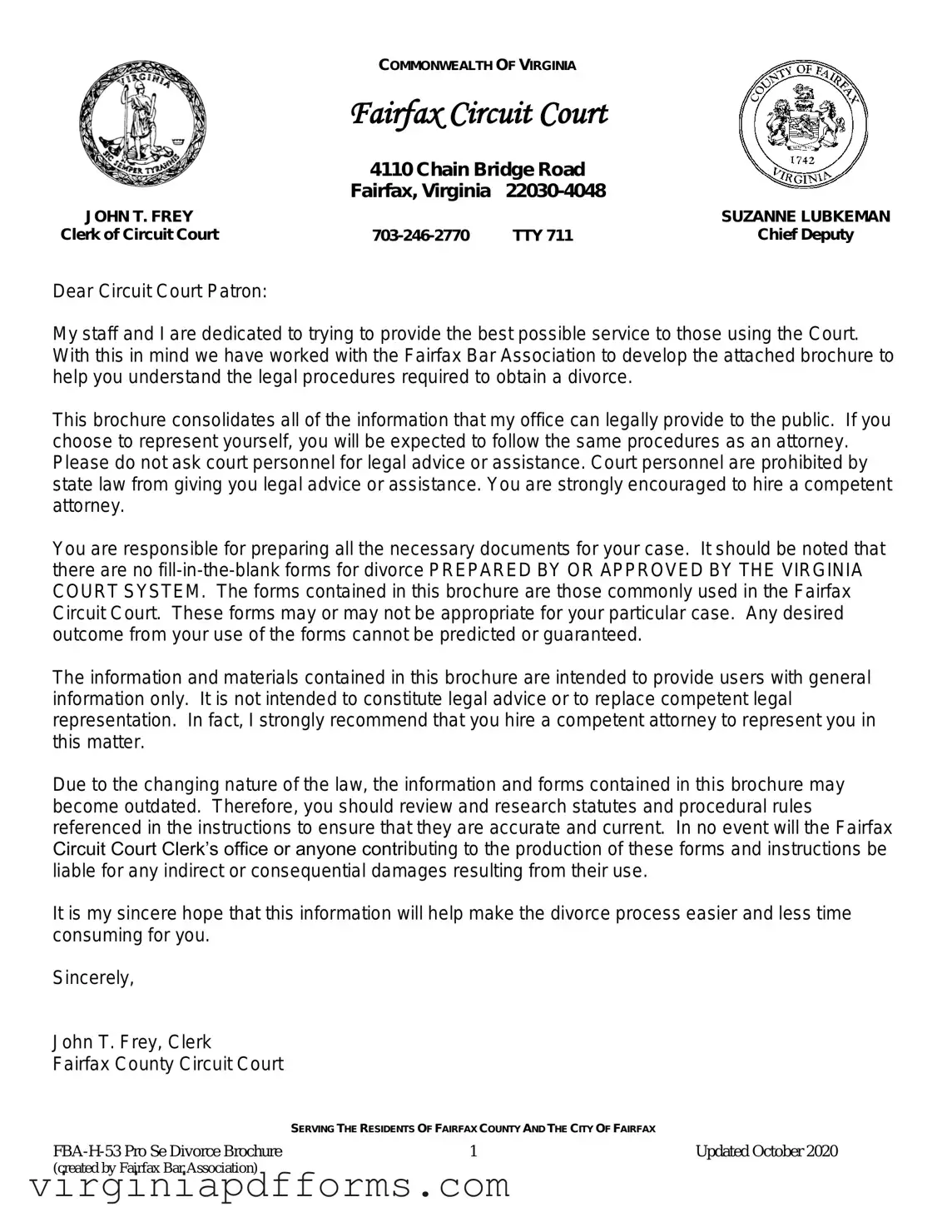Fill in a Valid Bill Divorce Virginia Sample Template
The Bill Divorce Virginia Sample form is a document used in the divorce process within the Commonwealth of Virginia. It serves as a guideline for individuals who choose to represent themselves, outlining the necessary steps and requirements to file for divorce in Fairfax Circuit Court. This article will explore the form's components and provide insights into the divorce process in Virginia.
Access My Document Now

Fill in a Valid Bill Divorce Virginia Sample Template
Access My Document Now

Access My Document Now
or
Free Bill Divorce Virginia Sample File
Need this form wrapped up fast?
Finish Bill Divorce Virginia Sample online — edit, save, download without effort.